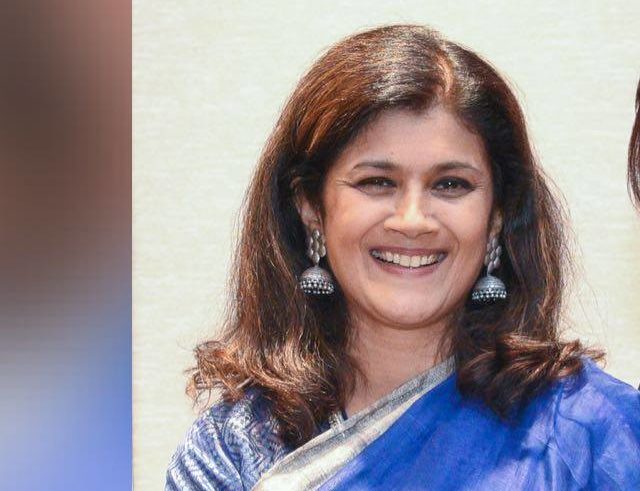Being in a constant state of flux and the wish to fit in is a strong influence in author Ashwini Devare’s works
Ayushi Astha was in conversation with journalist and author Ashwini Devare, in Kolkata when she visited the city for the Apeejay Kolkata Literary Festival.
Born in Moscow, Ashwini Devare spent her childhood in many different places – from Switzerland to Sikkim — due to her father’s job in the Indian Foreign Service. Her latest book, Lost at 15, Found at 50, which comes almost five years after her last anthology Batik Rain, was released in Singapore to critical acclaim.
Both her works deal with home and homecoming, and a search for identity in a constantly changing world. Batik Rain explores it through six short stories, while her second book is a memoir set against the backdrop of major sociopolitical events, such as her family’s stay in Moscow during the Cold War or bearing witness to the student demonstrations in Seoul.
In our discussion, she recollected how every step she took felt like a step with history, where every country they were going to was experiencing such extraordinary changes. She also talked about how this constant state of flux was very disruptive to her childhood and every few years there would be teary farewells and packed bags, but that was simply how the Foreign Service lifestyle was like back then.
Ashwini studied in a Swiss school, where all the classes were conducted in French. She was the only person of colour in the institution and to top that off, she could not speak the local language. The corresponding chapter in the book, ‘Brown Girl in The Ring’ contains very vivid descriptions of the beautiful settings of Switzerland and her quirky French tutor, a Madame Donici who appeared to be a relic of the past but was instrumental in her learning the language, an achievement that empowered her and made her feel like less of an outsider.
This feeling of not fitting in reappeared in her life when her family was posted in Burma and she was sent to live in Pune with her paternal grandmother. She writes, “With my two plaits, which my grandmother neatly oiled and braided every morning, I should ostensibly have blended right in, but there was something about me that spelt ‘foreigner’ in big and bold letters.”
Talking about her literary journey and her evolution as a writer, she said that the first book is similar to a first crush – it sort of just happens while the second time around, you are much more conscious of your writing. The second book took her much longer because it was so personal and emotional for her to put down on pen and paper.
After the success of Batik Rain, she did attempt a few other works but the idea of a memoir had always been on her mind. There was a lot of rewriting and editing that went into this book, and she stands by her motto that the more you write, the better you get. While she had initially planned on focusing on one portion of her life, like Cold War Russia, but later rejected that in favour of the current memoir format. The memoir is heavily based on dinner table conversations and snippets of everyday occurrences from her own life and that of her family.
She considers the book to be a tribute to her parents and their free-spiritedness and their courage in the face of all that they overcame. In the process of writing this memoir, she did suffer from self doubt, as she wasn’t a celebrity writing a tell-all memoir, but somewhere along the way this memoir became a way to preserve the legacy of her family for herself and for the generations that follow.
She says that at 50, she was finally ready to write her memoir. She needed the distance of time and space to revisit her memories through the lens of an individual as well as a writer and accurately represent them.
She went so far as to say that she couldn’t have written it earlier, because she needed to critically and objectively go back and analyse events, with the added benefit of the wisdom of age and the ability to commit to writing for a set amount of time each day. She ended with a quote by the bestselling author Jodi Picoult, who said that you can always edit a bad page, but you can’t edit a blank page.


Comments are closed.